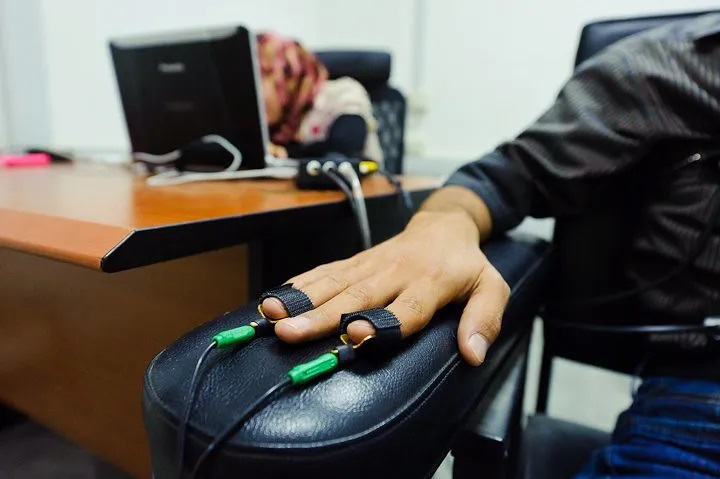For over a century, the polygraph has fascinated and controverted society. Are polygraphs reliable at detecting deception? Is evidence from polygraph tests admissible in court?
Physiological signs have been measured since ancient times, but polygraphs emerged in the early 20th century. In 1921, John Larson, a medical student and police officer, created the first modern polygraph device by connecting blood pressure and breathing monitors to suspects while interrogating them. The results were then analyzed and compared to develop an opinion on the likelihood of deception.
Government and private sectors began using polygraphs for employment screening and law enforcement investigations in the next few decades. The tests’ validity and accuracy were also controversial. Critics argued they were unreliable “pseudo-science” that could be beaten using countermeasures. Proponents claimed they were an invaluable tool for extracting confessions and determining truth. Nonetheless, polygraphs became deeply embedded in the American legal and employment systems.
How accurate are polygraphs?
The accuracy of lie detector test remains a topic of intense debate. Supporters claim accuracy rates upwards of 95%, while critics argue against anything over 50%. The disparity stems from the difficulty of measuring ground truth. There is rarely a definite method to verify if deception has occurred in real-world cases. As a result, polygraph studies rely on laboratory experiments, mock crimes, or instances where confessions later corroborate the original results.
In 2003, the National Academy of Sciences conducted an exhaustive review of polygraph research. Their conclusion found little evidence supporting accuracy rates above 70%-90%. Moreover, factors like emotional stress, medical conditions, or countermeasures affect results. Today, most experts believe basic polygraph testing has an accuracy rate of 70%-80% at best under ideal conditions. The relatively high error rates are a key reason polygraph results are banned from court in most jurisdictions.
Are polygraph results admissible in court?
In the United States, federal and most state courts prohibit the admission of polygraph results into evidence, barring certain exceptions. The reasons include:
- Unreliable and pseudo scientific – There is insufficient scientific consensus validating the reliability and theory behind polygraphs. The technology remains controversial with questionable error rates.
- Prejudicial – Polygraph results could excessively sway jury opinions despite questionable evidentiary value. Juries give excessive weight and presumption of truth to polygraph outcomes.
- Infringes on the role of the jury – The determination of truthfulness and credibility is meant to be the sole province of the judge and jury in court. Polygraphs infringe on this role.
- Fifth amendment violations – A defendant’s right against self-incrimination should not be violated by a polygraph.
However, polygraph tests are admissible in some cases. If both parties consent, some stipulations allow it. A polygraph can also reveal confessions. It is also used at sentencing or parole hearings, but not to determine guilt or innocence. In federal and most state courts, polygraph results are rarely used.





